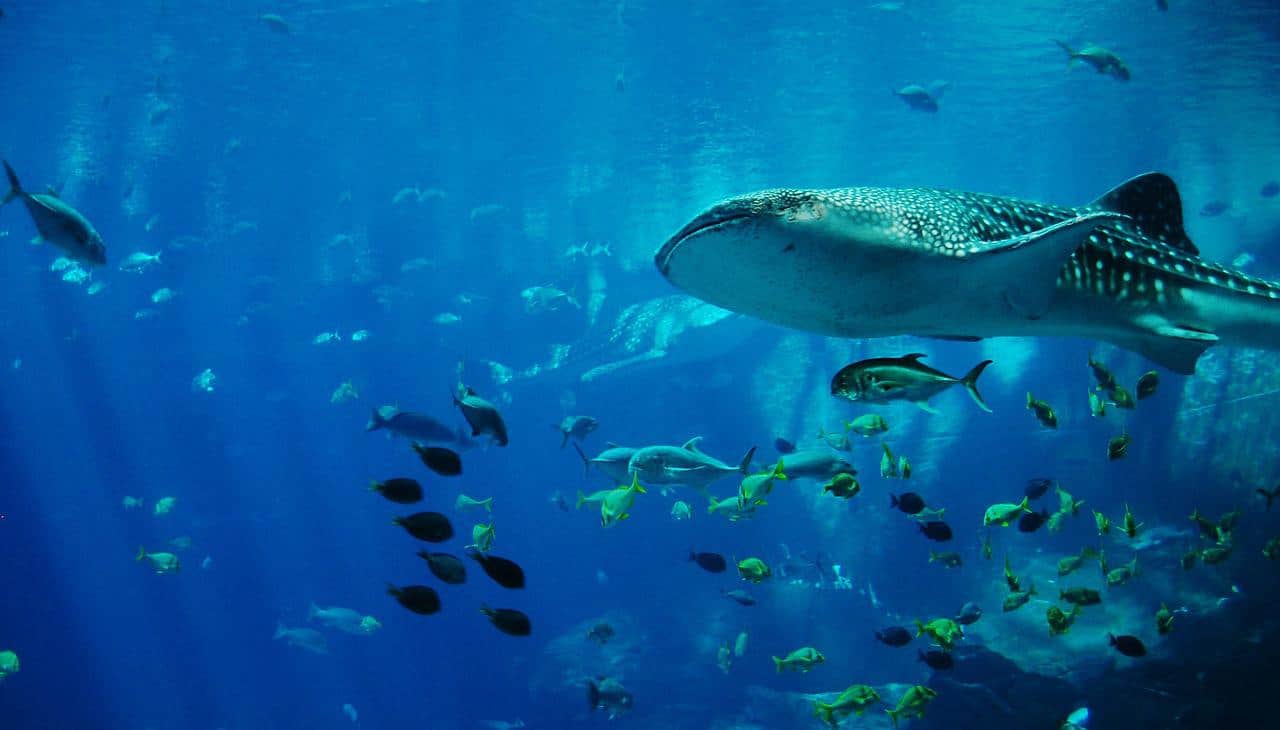The maritime shipping industry may be causing the decline of whale sharks, a hugely important species in the oceans.
Whale sharks, as their name indicates, are massive animals, reaching up to 20 meters in length. Yet their large size places these gentle filter-feeding giants in grave danger as the sharks frequently collide with ships, suffering grievous and often lethal injuries.
This previously overlooked fact could well be the reason why populations of the world’s largest fish have been falling in many places in the oceans, scientists say.
Whale sharks are slow-moving animals that feed on microscopic zooplanktons and spend large amounts of their time in surface waters while gathering in coastal regions. It has long been suspected that this behavior exposes the sharks to potential threats in waters with heavy shipping.
To ascertain if this is indeed the case, scientists from 50 international research institutions and universities decided to track the movements of nearly 350 whale sharks as well as large ships worldwide by help of satellites in the Global Shark Movement project.
The researchers then identified “hotspots” where the movements of cargo, tanker, passenger, and large fishing vessels overlapped with those of feeding whale sharks at the surface.
The scientists, who report their findings in a study, have discovered that more than 90% of whale shark movements coincide with shipping activities, which led them to the conclusion that whale sharks are often struck and killed by ships before sinking to the ocean floor without anyone noticing.
“Incredibly, some of the tags recording depth as well as location showed whale sharks moving into shipping lanes and then sinking slowly to the seafloor hundreds of meters below, which is the ‘smoking gun’ of a lethal ship strike,” says Prof. David Sims, a senior research fellow at the Marine Biological Association and the University of Southampton who founded the Global Shark Movement Project.
“It is sad to think that many deaths of these incredible animals have occurred globally due to ships without us even knowing to take preventative measures,” Sims adds.
Whale sharks provide significant ecological benefits as they help regulate plankton levels in the oceans, thereby playing an important role in the marine food web. Yet no international regulations exist to protect whale sharks from ship collisions even as such collisions continue to place these gentle giants in harm’s way.
“The maritime shipping industry that allows us to source a variety of everyday products from all over the world, may be causing the decline of whale sharks, which are a hugely important species in our oceans,” explains Freya Womersley, the leader of the project from the University of Southampton.
“Collectively we need to put time and energy into developing strategies to protect this endangered species from commercial shipping now, before it is too late, so that the largest fish on Earth can withstand threats that are predicted to intensify in future, such as changing ocean climates,” the scientist adds.
This story first appeared on Sustainability Times
South Africa Today
Photo: Pixabay/JimmyDominico
© 2022 Sustainability Times.
This article is licensed under a Creative Commons Attribution-ShareAlike 4.0 SA International License.












